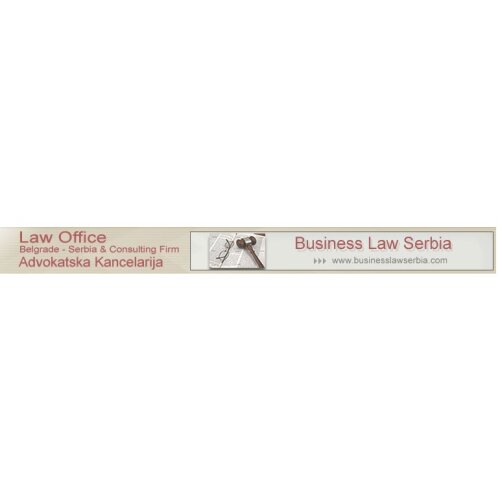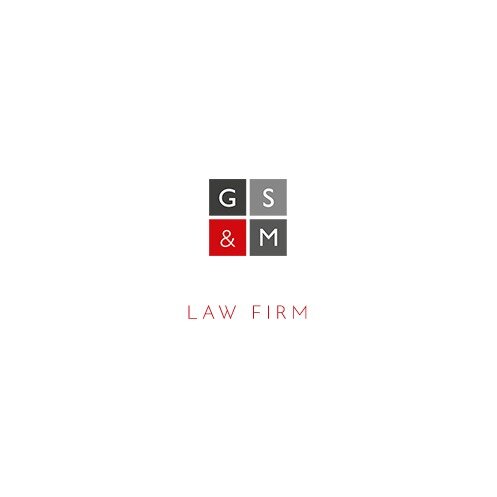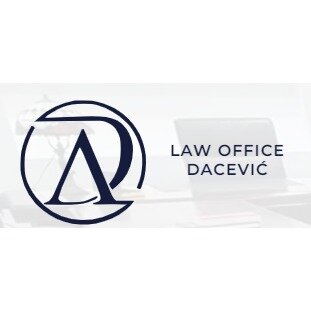Best Business Registration Lawyers in Serbia
Share your needs with us, get contacted by law firms.
Free. Takes 2 min.
Or refine your search by selecting a city:
List of the best lawyers in Serbia
Legal guides written by Business Law office - Advokatska Kancelarija:
- Why Invest In Serbia
About Business Registration Law in Serbia
In Serbia, business registration is a legally mandated process that every enterprise must undergo to operate legally within the country. The procedure is governed by the Business Registration Act, which outlines the requirements for establishing business entities and ensures transparency and legitimacy in commercial activities. Business registration in Serbia is primarily conducted through the Serbian Business Registers Agency (SBRA), which is responsible for maintaining an accurate and up-to-date registry of all business entities operating in the country.
Why You May Need a Lawyer
While the process of business registration in Serbia can be straightforward, various situations might necessitate legal assistance. These include:
- Understanding complex legal requirements: A lawyer can help interpret the nuances of Serbian business law, ensuring your enterprise complies with all regulations.
- Structuring your business: Legal advice can be crucial in deciding whether to register as a sole proprietorship, partnership, limited liability company, or another entity form.
- Documentation: Lawyers assist in drafting and reviewing necessary documentation, such as articles of association or partnership agreements, to ensure accuracy and compliance.
- Resolving disputes: Legal professionals can help handle disputes regarding business ownership, intellectual property rights, or contracts with third parties.
- Expediting the registration process: A qualified lawyer can navigate the bureaucratic hurdles, making the registration process more efficient and less time-consuming.
Local Laws Overview
Key aspects of local laws that apply to business registration in Serbia include:
- Types of business entities: Serbian law recognizes several business structures, including sole proprietorships, partnerships, limited liability companies (LLCs), and joint-stock companies.
- Capital requirements: Different business forms have varied capital investment requirements, with LLCs needing a minimum share capital as prescribed by law.
- Foreign ownership: Serbia allows 100% foreign ownership, although some sectors may have restrictions or additional requirements.
- Taxation: Business entities in Serbia are subject to various taxes, including corporate income tax and value-added tax (VAT), necessitating registration with the tax authorities.
- Annual reporting: Registered businesses must comply with annual financial reporting obligations, ensuring transparency and adherence to accounting standards.
Frequently Asked Questions
What is the first step in business registration in Serbia?
The initial step involves selecting a business name and checking its availability with the Serbian Business Registers Agency (SBRA) to ensure no duplication.
How long does the registration process take?
The process typically takes 5 to 7 working days, provided all documents are in order and there are no complications.
Do I need to be physically present in Serbia to register a business?
No, a business can be registered via a local legal representative if you are not able to be physically present.
What documents are required for business registration?
Necessary documents include a statement of acceptance of duties, a founders’ decision on company formation, a signed statement of consent for electronic communication, and proof of payment of administrative fees.
Can a foreign entity register a business in Serbia?
Yes, foreign entities can register a wholly foreign-owned company in Serbia and are entitled to the same rights as domestic companies.
Is there a minimum capital requirement for registration?
Yes, particularly for limited liability companies, there is a minimum capital requirement, which is regulated by law.
How can I ensure my business name is unique?
You should conduct a business name search through the SBRA’s database before submitting your application.
What is the role of a notary in business registration?
Notaries authenticate certain documents relevant to the registration, including signatures on various legal agreements.
Are there ongoing obligations post-registration?
Once registered, businesses must comply with annual reporting and tax filing requirements to remain in good standing.
How do I register for taxes in Serbia?
Tax registration is generally processed simultaneously with business registration through the SBRA, involving VAT and corporate tax registrations.
Additional Resources
For more information regarding business registration in Serbia, you may find these resources helpful:
- Serbian Business Registers Agency (SBRA): The central authority for business registration.
- Ministry of Economy: Provides guidance on business policies and economic development.
- Chamber of Commerce and Industry of Serbia: Offers networking opportunities and services for businesses.
Next Steps
If you require legal assistance with business registration in Serbia, consider the following steps:
- Consult with a lawyer specializing in corporate law to discuss your business structure and legal needs.
- Prepare all necessary documentation, ensuring full compliance with legal requirements.
- Contact the Serbian Business Registers Agency or engage a legal representative who can handle registrations on your behalf.
- Attend informational sessions or workshops held by local business associations to further streamline the registration process.
- Maintain open communication with legal counsel to swiftly address any potential legal issues post-registration.
Lawzana helps you find the best lawyers and law firms in Serbia through a curated and pre-screened list of qualified legal professionals. Our platform offers rankings and detailed profiles of attorneys and law firms, allowing you to compare based on practice areas, including Business Registration, experience, and client feedback.
Each profile includes a description of the firm's areas of practice, client reviews, team members and partners, year of establishment, spoken languages, office locations, contact information, social media presence, and any published articles or resources. Most firms on our platform speak English and are experienced in both local and international legal matters.
Get a quote from top-rated law firms in Serbia — quickly, securely, and without unnecessary hassle.
Disclaimer:
The information provided on this page is for general informational purposes only and does not constitute legal advice. While we strive to ensure the accuracy and relevance of the content, legal information may change over time, and interpretations of the law can vary. You should always consult with a qualified legal professional for advice specific to your situation.
We disclaim all liability for actions taken or not taken based on the content of this page. If you believe any information is incorrect or outdated, please contact us, and we will review and update it where appropriate.
Browse business registration law firms by city in Serbia
Refine your search by selecting a city.

















